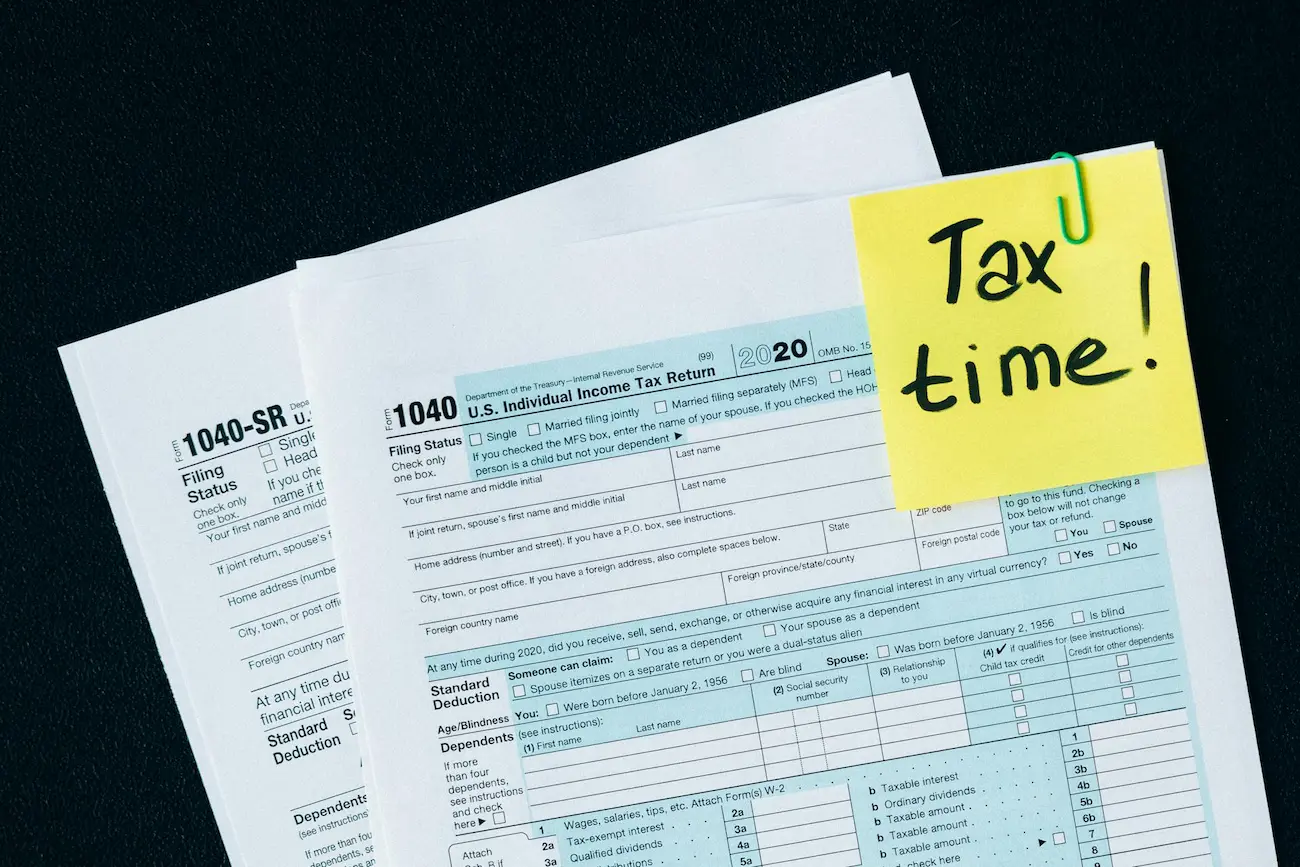In the bustling city of Brea, California, known for its vibrant business community and entrepreneurial spirit, a well-crafted tax strategy is not just a formality—it’s a crucial component of business success. Navigating through the complexities of tax laws can seem daunting, but with the right approach, businesses can save thousands of dollars each year. A solid tax strategy encompasses more than just preparing for the tax season; it involves a comprehensive plan that includes tax planning, compliance, and reporting to optimize your financial outcomes.
Brea’s unique position in Southern California makes it a magnet for small businesses and large corporations alike. With a dynamic economy and a supportive local government, Brea offers a fertile ground for businesses to thrive. However, this prosperity comes with the responsibility of managing tax liabilities effectively. The local, state, and federal tax regulations can significantly impact a company’s finances, making a robust tax strategy essential.
Understanding Tax Strategies
A sound tax strategy is a blueprint for financial efficiency in business. It not only helps in minimizing liabilities but also ensures that all regulatory requirements are met, reducing the risk of costly penalties.
Components of a Tax Strategy
- Tax Planning: Tax preparation or planning is the proactive management of financial affairs to ensure maximum tax efficiency. Strategies involved include deferring income, choosing the right business entity, claiming available tax credits, and making investment decisions that can lower taxes like capital gains.
- Tax Compliance: Ensuring compliance with ever-changing tax laws is fundamental. This involves preparing accurate tax returns and deciding the correct amount of tax to pay on time. Compliance helps avoid legal issues and penalties, saving money and maintaining the company’s reputation.
- Tax Reporting: Accurate tax reporting involves keeping detailed records that reflect the company’s financial situation. It’s not only about adhering to the law; thorough and strategic reporting can provide insights into managing business operations more effectively.
Tax Laws and Regulations in Brea, CA
- Local Tax Regulations: Brea operates under specific tax rules that affect local businesses. These include business license taxes and property taxes that directly impact the overall tax rate.
- State Tax Laws: California’s tax landscape is complex, with implications for business operations. Understanding state tax codes can help in strategic tax planning and deductions specific to California-based businesses.
- Federal Tax Laws: At the federal level, businesses must navigate a range of tax obligations from income tax to employment taxes. Knowledge of federal tax laws is important for maximizing deductions and strategically planning for the financial future.

Benefits of a Well-Planned Tax Strategy
A well-planned tax strategy is essential for businesses, offering multiple benefits that extend beyond mere tax season savings. Financial savings are the most apparent advantage, as effective tax planning helps companies minimize their tax liabilities, thereby preserving more of their profits. This additional capital can be reinvested in the business, fostering further growth and innovation.
Moreover, a strategic approach to taxes enhances risk management by ensuring full compliance with the latest tax laws and regulations, which protects businesses from penalties and potential legal consequences. Beyond savings and compliance, a thoughtful tax strategy supports business growth and expansion. It provides a stable financial base from which companies can explore new ventures or expand their operations, knowing their tax situation is optimized for such moves.
How Potrus CPA Helps Businesses in Brea
In the competitive landscape of Brea, CA, financial challenges are as abundant as opportunities, making a solid tax strategy indispensable for business success. Potrus CPA, with its deep expertise in tax planning and financial management, is ideally positioned to guide local businesses through the complexities of tax optimization. The firm specializes in tailoring tax strategies that align perfectly with the specific needs and goals of each client, ensuring maximum tax savings and compliance.
Furthermore, Potrus CPA’s comprehensive approach extends to advising on investment and retirement planning, providing a holistic service that supports long-term business stability and expansion in Brea’s dynamic market.
Maintaining Accurate Records and Separating Finances
The cornerstone of any effective tax strategy involves maintaining meticulous financial records and distinctly separating business from personal finances. This dual approach is crucial for several reasons. First, accurate record-keeping enables businesses to maximize their eligible tax deductions. Every recorded business-related expense becomes a potential reduction in taxable income, which can lead to substantial tax savings.
Additionally, having well-organized and separate financial records simplifies the audit process. It provides a clear, transparent financial trail that aids in justifying business expenses and deductions to tax authorities. This practice not only facilitates smoother financial management but also prevents the complications that arise from mixing personal and business funds, which can lead to errors and potential tax issues.
Maximizing Deductions and Tax Credits
In California, small businesses can tap into a myriad of deductions and tax credits that significantly ease their tax burdens. Common deductions include those for equipment purchases, vehicle usage, and maintaining a home office. Such deductions enable businesses to lower their taxable income by accounting for essential operational costs.
Beyond deductions, there are numerous tax credits available that further reduce tax liabilities. For example, businesses employing veterans or individuals from economically disadvantaged backgrounds may qualify for specific employment-related tax credits. Adopting energy-efficient technologies or practices can make businesses eligible for federal and state tax credits, promoting environmental sustainability while reducing tax obligations.
Proper Business Classification
Choosing the appropriate business structure is vital for optimizing tax outcomes. The classification of a business, whether as a sole proprietorship, LLC, S-corp, or other, carries significant tax implications. For instance, LLCs offer flexibility in profit distribution and tax reporting, potentially providing substantial financial benefits over sole proprietorships. Alternatively, an S-corp might allow business owners to draw a reasonable salary while taking additional income as distributions, which could be taxed at a lower rate.
Engaging with a tax advisor to regularly review and adjust the business structure is essential. This ongoing optimization ensures that a business remains aligned with the most tax-efficient practices, considering any changes in the business environment, growth trajectories, and evolving tax regulations.
Year-Round Tax Planning
Year-round tax planning is essential for any business looking to optimize its financial performance. Rather than treating taxes as a once-a-year obligation, a continuous and proactive approach to tax planning allows businesses to make informed decisions that minimize their tax liabilities throughout the year. This ongoing process involves regularly reviewing financial activities and making necessary adjustments to align with new tax-saving opportunities and changing laws.
For example, a business might adjust its investment strategies or accelerate certain expenses to take advantage of tax breaks that emerge during the fiscal year, thereby enhancing overall financial efficiency.
Working with Tax Professionals
Engaging with Certified Public Accountants (CPAs) and tax advisors is crucial for navigating the complex and ever-changing tax landscape. These professionals are not only versed in current tax laws but also keep abreast of regulatory changes that could impact your business. Their expertise extends beyond preparing returns; they provide tailored advice that can lead to significant tax savings by identifying lesser-known deductions and credits.
In the event of an audit, these professionals are invaluable, offering guidance and representing businesses before tax authorities, thereby mitigating risks and easing the audit process.

Taking Advantage of Retirement Plans
Contributing to retirement plans such as SEP IRAs or 401(k)s is a strategy that offers immediate tax benefits and secures long-term financial health. These contributions are tax-deductible and lower a business’s taxable income for the year, effectively reducing the tax burden. Beyond tax savings, offering robust retirement plans is an excellent way to attract top talent and enhance employee retention, contributing to a stable and motivated workforce.
For Brea business owners, regularly investing in these plans is a prudent strategy that not only secures their financial future but also supports the financial stability of their employees, creating a mutually beneficial work environment.
Timing Income and Expenses Strategically
Strategic timing of income and expenses is a key tactic in tax management, directly impacting a business’s taxable income for the year. By managing the timing of when income is received and expenses are incurred, businesses can effectively control their financial reporting and tax obligations.
For instance, if a business anticipates a higher tax rate in the upcoming year, it might choose to accelerate certain expenses like purchasing equipment or making repairs at the end of the current year. Conversely, deferring income to the next fiscal year can be beneficial if it helps the business remain in a lower tax bracket, thereby reducing the overall tax liability. This strategic financial maneuvering requires careful planning and foresight to ensure compliance and optimize tax outcomes.
Leveraging Local Economic Development Initiatives
Brea, California, is well-known for its commitment to fostering a robust business environment through various economic development initiatives. These programs often include tax incentives, grants, and resources designed to support the growth and sustainability of local businesses. By staying actively informed about these opportunities, businesses in Brea can capitalize on significant financial benefits.
Participating in local economic development programs not only helps reduce operational costs but also strengthens community ties and supports regional economic health. For businesses looking to expand or sustain their operations, engaging with these local initiatives can be a strategic move that yields long-term advantages.
The Power of Strategic Tax Planning
In Brea, CA, where business opportunities are as diverse as they are lucrative, adopting a comprehensive tax strategy is crucial for maximizing financial efficiency and sustainability. From maintaining accurate records to leveraging local economic incentives, strategic tax management plays a pivotal role in reducing liabilities and fostering business growth.
By engaging with experienced tax professionals and employing strategic timing of income and expenses, businesses can navigate the complexities of tax laws effectively. Harness these strategies to not only survive but thrive in the competitive landscape of Brea, ensuring long-term success and stability.







